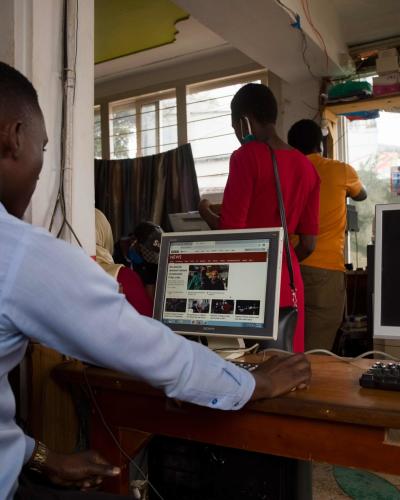75 years ago, the UN Security Council sent the first peacekeeping mission, UNTSO, to maintain the ceasefire in the Middle East. Since then, over one million people have served in more than 70 UN peace missions. Millions of civilian lives around the world have been saved as a result. Today, twelve missions are active, and the nature of conflicts has changed radically since 1948. The UN Security Council today exchanged views on how UN peacekeeping missions need to adapt to fulfil their missions in an increasingly complex environment. The Blue Helmets do valuable work in many conflict regions under difficult conditions. Among other things, they monitor ceasefires, provide access for humanitarian actors through their presence and support political stabilisation processes so that sustainable peace can be secured.
During the Council meeting, Switzerland stressed the need to strengthen partnerships with regional organisations, in particular the African Union (AU). The peace missions led by the AU should also be able to react more flexibly to unforeseen events. In addition, the protection of the civilian population should always be at the centre of a peace mission. "Switzerland is eager to advance the discussion on the necessary reforms of the peace mission," said Pascale Baeriswyl, Swiss UN Ambassador in New York. In addition, Switzerland also stressed the importance of the effectiveness of UN peace missions. Against this backdrop, Switzerland called in the Council for an even stronger coordination of planning, budget and performance evaluation so that UN peace missions can make an effective and efficient contribution to peacebuilding.
Statement by Switzerland on UN peace missions, UN Security Council, 07.09.2023





